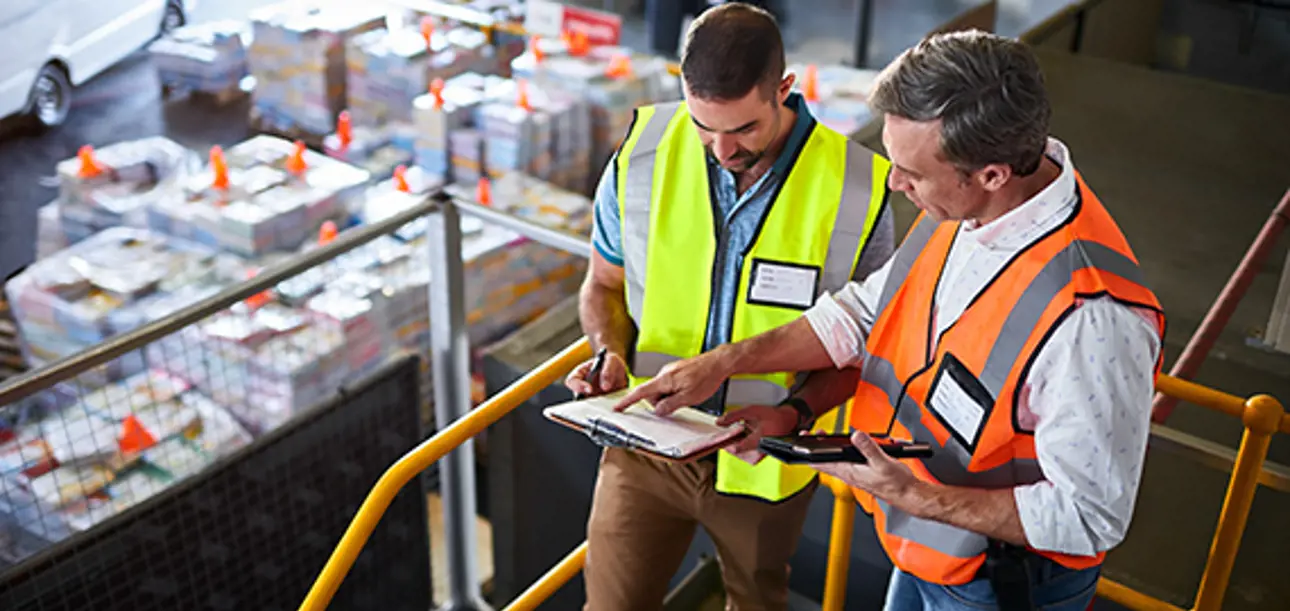Auditing suppliers for sustainability
Every year, Valmet conducts around 50 sustainability audits for its suppliers as part of its sustainable supply chain program. At the core of the process is Valmet’s own supplier sustainability auditor pool, which consists of Valmet professionals from global procurement.

These auditors ensure that Valmet’s suppliers meet the minimum requirements in Valmet’s sustainable supply chain policy. Two of Valmet’s auditors, Will Li from China and Arnaldo Sanchez from Mexico tell about their experiences. Will and Arnaldo are part of group of over 30 Valmet auditors around the world.
Effective supply chain management
To effectively manage risks in the supply chain, Valmet has a comprehensive approach to sustainable supply chain management, including sustainable supply chain policy, risk assessments, supplier self-assessments, and supplier sustainability audits executed with a third party. Compliance with Valmet’s Sustainable Supply Chain Policy is the starting point for entering and maintaining any kind of business relationship with Valmet. We expect all our suppliers to comply with the sustainability requirements in the policy, and we have zero tolerance towards the use of forced labor or child labor.
In 2017, Valmet conducted a total of 56 supplier sustainability audits using Valmet’s global sustainability audit protocol together with an independent, certified, third-party auditor, in Poland, Estonia, India, Thailand, China, Brazil, Chile, Mexico, the United States, Indonesia, Turkey, Hungary, Romania and Sweden. The protocol ensures the process is consistent and enables comparability between suppliers.
Sustainability audit findings are based on non-conformities with the Sustainable Supply Chain Policy, or with local or international law. Most findings (58 percent of all findings) were related to human and labor rights, as well as health and safety. We follow up all findings from sustainability audits through a systematic process that includes a corrective action plan that the supplier carries out and that we monitor and verify. Of all the suggested corrective actions in 2015–2017, around 67% were completed and verified by the end of 2017. Valmet can support suppliers in implementing corrective actions, but if the supplier refuses to proceed with the corrective actions, Valmet reserves the right to terminate the contract with the supplier.
"An eye-opening experience"
All Valmet's own auditors perform sustainability audits as part of their work. For Li and Sanchez, sustainability auditing has been an eye-opening experience. "I see that sustainability audit processes and implementing corrective action plans have a real impact in achieving more sustainable and safe operations at suppliers’ facilities," says Sanchez. "It has been a great learning opportunity for me, too," he adds. "I enjoy seeing how many suppliers have really changed the mindset regarding sustainability here in China," Li explains.
Since the two started to audit suppliers, noticeable changes have occurred in both countries. "People in China have become increasingly aware of sustainability. The government is now imposing stricter environmental regulations, and we can support our suppliers so that they are more likely to meet these new requirements," says Li. "In Mexico, there’s still room for improvement regarding safety issues, but Valmet and other global companies have been pushing Mexican companies forward in sustainability,” says Sanchez.
Read more about Valmet's sustainable supply chain activities in Valmet's Annual Report 2017.
See below a video about supplier sustainability auditing in India:
 |
Back in the old daysLoading for transport of mercerizing equipment to Chile from Sunds Verkstäder AB in 1956. |